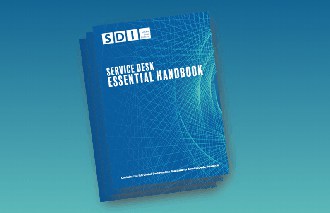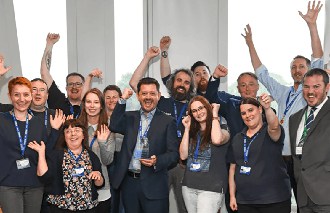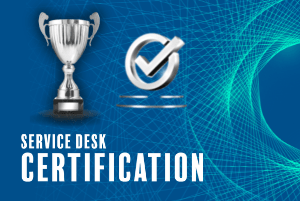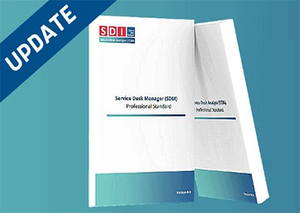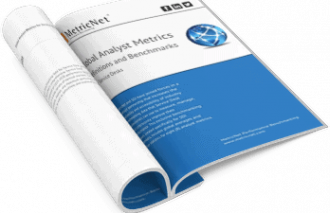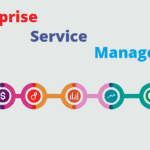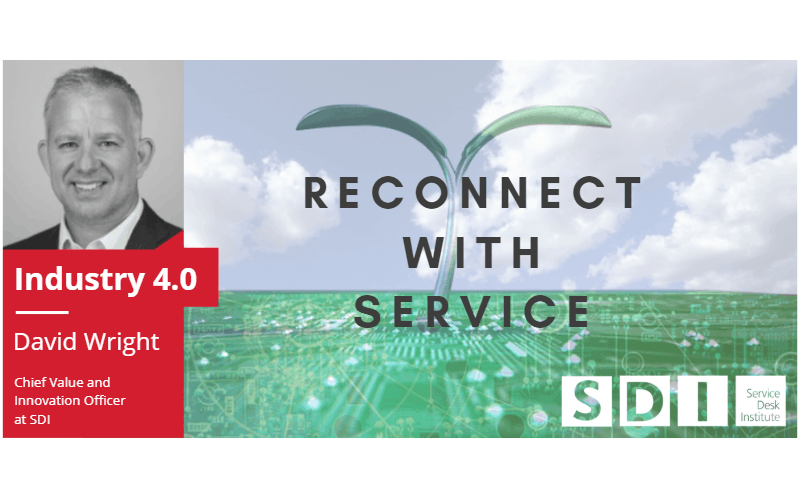
By David Wright, Chief Value and Innovation Officer, Service Desk Institute
Reconnect with Service: Part 1 of 2
At SDI, we’re very lucky to be able to support our community all over the world, face to face. During one such engagement recently, I found myself fiddling with an in-flight entertainment system to try and find something to expand my brain, not an easy task on most flights I’m sure you’ll agree. However, I did manage to find something that resonated. It was a 45-minute documentary on the disconnect between what we’ve become as a species, and how the choices that got us to where we are right now, have impacted on our connection to the natural world. It proposed we should as a species reconnect with nature, and innovate using nature as a blue print rather than creating ways of working that contradict the way nature works, to the detriment of both us and the planet that supports our existence.
It got me thinking about a mirrored issue that we find in IT service management; the fact that the systems we’ve created to govern the delivery of IT services to try and make things ‘better’, have actually helped to disconnect us from the very point of our existence. IT service management has evolved so much in the last 30 years, such that in many cases, IT departments and practitioners have become disconnected from what we are really trying to achieve. Along the way, methodologies and frameworks have been developed to support the creation of efficient, repeatable IT service. However, many may argue we are further away than ever before, from the premise of delivering a brilliant service experience. In the modern world, (yep, we’re already in the future) the only way we’ll make IT service management the meaningful profession is should be, is to reconnect with service…
Organisational ecosystems
Just as the earth is a group of symbiotic systems that supports life, so IT is a group of symbiotic systems that supports the life of a business. That’s why we use the word ecosystem to explain the relationships between systems that help us survive in our working environments. Over the last few hundred years, through advances in technology and new ways of working, our species has gradually been disconnecting itself from nature, in the same way that IT over the last 30 years has gradually been disconnecting itself from ‘the business’ and the people who work in the business. Like the earth, a business is an incredibly complex system; and that interactive system, ultimately means that everything is interconnected and interdependent. In a business, we use the same technology that everyone else uses, we’re part of the same culture that everyone else is part of, people consume the life blood of the business. In the same way that the air we breathe, is the same air that all other animals on earth breathe. There is no separation.
It’s no coincidence the words organ, organism and importantly, organisation, are all organically derived definitions to explain systems; or that the word organise means to arrange or structure in a systematic, efficient way. The organisation, and the way an organisation organises itself, is inherently organic; you could even argue that evolution itself, is simply the way organisms embrace continual improvement as THE, core critical success factor. Evolution is essentially keeping a species alive, in the same way CSI keeps a business alive. IT service management also supports technology ecosystems in an organisation, in the same way organisms in nature collaborate and develop their own supporting mechanisms. Nature however, tends to adapt to prevailing environmental conditions more effectively than IT service management does to prevailing business conditions. Nature has also created a diverse, multifaceted approach to the outcome of survival, whereas IT service management has relied upon adopting a mainly linear approach, shoehorning organisations into the same way of doing things and expecting, well, hoping for, the same positive system outcomes.
Survival of the fittest
I heard a wise man once say, “IT is just seen as the part of the business that says no,” wouldn’t it be brilliant if instead, IT was really seen as The Business Enabler. In many organisations, methodologies and frameworks have dominion over service. Through evolution, this has led to a negative orientation of their use, where IT support just interprets the solutions it provides as solely transactional, orientated to meet linear value depleted targets that have little baring on the service experience they deliver.
That simply just isn’t good enough anymore, we’ve come to the end of that track, we now see instead of dominion over service, that IT and the service desk are actually participants in the organisational ecosystem. Just as in life’s ecosystems, all things in the business co-exist together. The ‘aliveness’ in service connects with the ‘aliveness’ of the business. This means a shift in thinking, away from dominion control, to stewardship and trusteeship. It’s really more about a responsible relationship to service experience, than the relationship with meeting an SLA or adhering to a process….
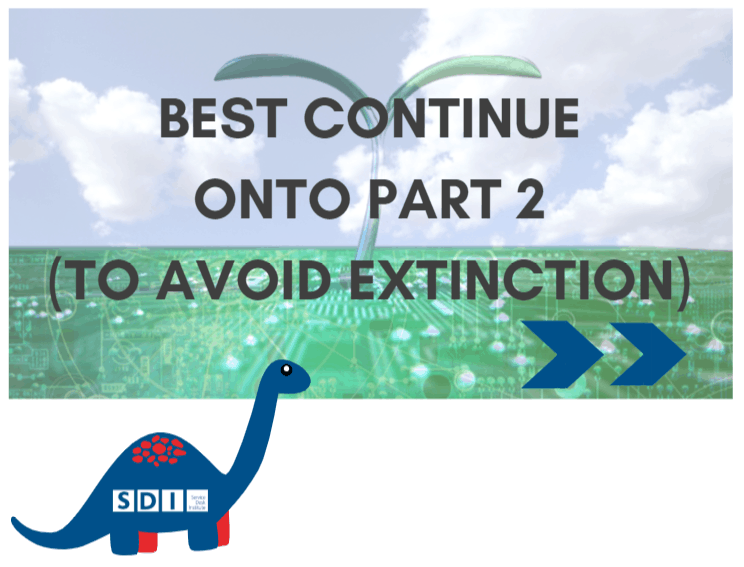 Part 2 >>
Part 2 >>
